|
So if you've spent any time talking to me about books, writing, feminism, or literally any topic in the last two months I probably took a couple minutes to fangirl over Roxane Gay. Her two books released this year, Bad Feminist and An Untamed State are brilliant and her blog is nuanced, hilarious, and insightful. I am super into her because she is great and you should check her out. Also she often live-tweets episodes of The Barefoot Contessa. It's about time someone brought Ina into the spotlight.
I've been quasi-obsessively reading through the archives of her blog for the last few weeks. I seriously can't get enough of her writing, and she writes a lot. Recently I came across this paragraph from a short post entitled "Real Talk Topics":
0 Comments
Okay, here's the thing. Here's the thing about Ray Kelly's speech at Brown. I don't want to call out specific people here. I acknowledge that conversation around this issue has been tense, loaded, and heated. I also acknowledge that a variety of voices have allied themselves in the fight against Kelly's speech, for which I am grateful. But I must also acknowledge the voices who wish to drown out the voices of oppressed communities. I need to process all the folks on my Facebook feed talking about how Brown students should not have shouted down and cancelled Kelly's inevitably offensive, appalling lecture in List Auditorium today. I cannot see one more status pleading that we ask him hard questions; that we engage in discussion with one of the most lauded racists of our time; that we be more "open-minded" in pursuit of a campus community that embodies Brown's values (whatever those are). It makes me want to BREAK THINGS. Here is why. Certain populations in this country are told that what they say deserves to be heard. Certain demographics are lauded for having strong opinions, for pushing the envelope, for speaking loudly and standing up for what they believe in.
Do you know who these people are? Guess. GUESS. (Hint: Not women. Not POC. Not LGBTQA. Also, they look like a lot of the folks perpetuating anti-protest rhetoric on my newsfeed.) Now, please understand that I certainly recognize that my white privilege, my Ivy League education, and my strong personality empower me to speak and be heard in many situations. I am entitled to a platform in many communities, increasingly even on this blog and especially as I try to raise awareness of my writing and work. I believe that I deserve to be listened to, and that makes me entitled. I constantly examine this position, hoping to continually use this entitlement in solidarity with folks less privileged than myself. (And if you have constructive things to say about how this essay is not pursuant to that goal, please engage with me!) And I was also taught my whole life that what I have to say is less important than what white men have to say. I was taught this by the media, by gender expectations, by visions of leadership that did not represent me or my female peers. I was taught: glass ceiling. I was taught: stay quiet. I was taught: make me a sandwich. From what I have gathered and learned from my incredible friends and peers organizing an enormous effort to shut down Kelly's lecture, my experience is not unique. Many of us in marginalized or oppressed communities feel that our voices are not valued. Some have, in recent years, been taught this in not-so-subtle fashion by the New York Police Department. Violence and oppression from the police is status quo in New York City today. I have felt this impact to an extent myself, having been exposed to sexism and verbal harassment from the very people allegedly keeping me safe. This state of fear is a direct result of Ray Kelly's "proactive policing," including stop-and-frisk. It has taken me years to develop a sense of my voice, and to find comfort in speaking my mind. I find empowerment in feminist, activist, and anti-racist communities who echo and amplify messages that guide my decision-making every day. I work and aspire to one day claim those descriptors myself. But despite the growth and proactivity of progressive communities, we are not living in an equal society. We are not living in a world where anti-racism is "the visible opinion," as some horrible person wrote on Brown University Compliments. We live in a world where oppressed communities ARE OPPRESSED. THAT MEANS THEY ARE NOT LISTENED TO. And an auditorium at Brown University, though we so desperately wish to believe ourselves special and unique, is not absent the context of our not-at-all-colorblind society. I am not at all surprised that many folks opposed to Kelly's policies didn't even entertain asking him questions. Why? Because I was never taught that if I simply ask a well-thought-out question, someone in a position of power will listen to me. Because collective action, chanting, and protest is many communities' only hope of being heard in a society that is simply unwilling to acknowledge their voices. I don't understand the logic that if those opposed to Kelly would just ask him questions, somehow some greater truth would be told. That is simply a privileged understanding of how politics and debate operates in our country. The only truth is the truth of human experience. And human experience in New York City, under the military control of the NYPD, is in desperate need of a new "visible opinion." Human experience has showed us that stop-and-frisk is destroying communities and lives. Asking communities affected by or opposed to that policy to stay silent IS OPPRESSION. I so wish we lived in a society where I could expect that, given a platform and time for Q&A, Ray Kelly could engage in conversation with students positioned against his racist policies. Unfortunately, as a New Yorker who is far too aware of the direct consequences of white male privilege, I strongly disagree that such a space could have ever been created today. In sum, thanks to my Brown friends for fucking shit up. Happy holidays, world! Vacation means more time for me to read things about food on the internet, and then more time to mull it over and form opinions. And you get to read them! The title of this post is a play on Julie Guthman's "The Food Police: Why Michael Pollan Makes Me Want to Eat Cheetos". In that article, originally published in Gastronomica, Guthman critiques the "messianic, self-satisfied tone" with which Pollan writes about his own diet and the diets of other healthy - read: thin - people. Fundamental to Pollan's perspective - which is admittedly now further-developed than in 2008, when Guthman's piece was published - is an upper-middle class lifestyle complete with upper-middle class resources, values, body image concerns, and food access. Which is all well and good! Pollan has his limited perspective and that's fine. And though I take issue with some of his positions, Pollan does his research. He's aware of his biases. But I think we have a wider problem in food writing - that the only other widely-read commentator on food policy possesses the same biases as Pollan, but examines them even less. Which brings me to the point of this post - Mark Bittman's most recent Opinionator column from December 25th, 2012. This article is the latest in a slew of opinions pieces by Bittman that range from questionable to absurd. Bittman has a unique ability to be coyly, slyly condescending in such a subtle manner that you might just miss the moment he essentially blames obesity on poor people drinking soda. Here's my problem with Bittman's world. In Bittman's world, obesity exists primarily in poor communities where families rely on SNAP benefits, and are uneducated in how to properly feed themselves and their children. His solution is to remove agency from individuals and families who receive SNAP benefits by limiting what foods and beverages SNAP can buy, and thereby address our so-called obesity epidemic. His assertion that "the answer [to improving the diets of SNAP participants] is easy" [emphasis added] is patronizing, insensitive, ignorant. Maybe this seems harsh, because maybe that's not the impression you got from Bittman's piece. There goes his subtle condescension! It's easy to miss! But it's there. Let's look at some key quotes. The "evidence" for Bittman's "argument" comes from a new article co-authored by David Ludwig, one of a few prominent medical professionals currently writing (read: spouting) about obesity and, vaguely, food policy. Here's Ludwig's justification for why we should limit the purchasing power of people who receive SNAP benefits: “It’s shocking,” says Ludwig, “how little we consider food quality in the management of chronic diseases. And in the case of SNAP that failure costs taxpayers twice: We pay once when low-income families buy junk foods and sugary beverages with SNAP benefits, and we pay a second time when poor diet quality inevitably increases the costs of health care in general, and Medicaid and Medicare in particular [emphasis added]." Who's the "we" here? The first we refers to doctors; the second, to taxpayers. Ah, taxpayers! The everyman; the voting population; we government-supporting, rights-defending Americans! But wait - "we" apparently don't include "low-income families", the kind who "buy junk foods and sugary beverages" and have "poor diet quality", and make us pay for their health care. Apparently taxpayers are also healthy-eating, soda-eschewing, junk-food-abhorring skinny people. I never knew! Does that mean I don't have to file this year? So anyway, if it's so "easy" to improve the diet of SNAP participants - and thereby defeat obesity, remember! - how do we do it? This could happen in two ways: first, remove the subsidy for sugar-sweetened beverages, since no one without a share in the profits can argue that the substance plays a constructive role in any diet. “There’s no rationale for continuing to subsidize them through SNAP benefits,” says Ludwig, “with the level of science we have linking their consumption to obesity, diabetes and heart disease [emphasis added].” Alright Bittman, let's play ball. Who's to define what foods play a "constructive role" in a person's diet? Do Cream Cheese Brownies play a constructive role in my diet? Or Lemon Cheesecake with Sour Cream Topping? Or Cheese Souffle? Jeez, How to Cook Everything sure has a lot of non-constructive recipes. See what I did there?? And as for Ludwig's claim that there's "no rationale" for allowing SNAP benefits to be used to purchase soda...well, I don't really need to be nuanced about this. All of us see advertisements. All of us are affected by them (even healthy - read: thin - people). Some of us drink soda, some of us don't. If the medical establishment really thinks that soda is so unhealthy that it should be illegal for people to buy it, then MAKE IT ILLEGAL TO PRODUCE SODA. But that probably wouldn't be as easy as limiting the purchasing power of a politically and economically unempowered population. Alright, one more - stay with me! Simultaneously, make it easier to buy real food; several cities, including New York, have programs that double the value of food stamps when used for purchases at farmers markets. The next step is to similarly increase the spending power of food stamps when they’re used to buy fruits, vegetables, legumes and whole grains, not just in farmers markets but in supermarkets – indeed, everywhere people buy food. [Emphasis added] I don't disagree with Bittman here. It would be great to expand farmers market incentive programs and to increase the value of SNAP benefits for buying produce. That would be wonderful! Let's do it!
I pull out the above quote primarily to reiterate misuse of the word "easy" throughout this column, and indeed throughout Bittman's entire philosophy. Ease is at the crux of the philosophy of those - like Bittman and Pollan and probably Ludwig - who perpetuate the "messianic, self-satisfied tone" of health-focused, white, upper-middle class food commentators. Being healthy (READ: THIN) is easy - you just need to make the right choices. And if you don't make the right choices, we'll make them for you. Like Pollan, Bittman is entitled to his opinions. He's entitled to his biases and, like everyone (me too!), is a product of only his own experiences and context. And if he were writing exclusively about the dietary choices of white, upper-middle class people, his columns would be far less problematic. But he's not. I challenge Bittman to, in the words of the internet, do better. Ask some people who receive SNAP benefits what their opinions are on restricting their purchasing options. Talk to community organizers who work on hunger and poverty issues in urban or minority communities. Do your research. Ask more questions. Challenge your assumptions. I mean, you're writing in the New York Times. Do the issues justice. I empathize - it sucks to be one of only a few people tasked with representing the entirety of food policy and diet issues throughout our vast country. Maybe - hopefully - we'll one day be able to debate this issue as peers. I'd be happy to ease some of your workload. Thanks for reading. L |
Who?Writer, eater, feminist, musician. Let's talk. What?
September 2014
Categories |
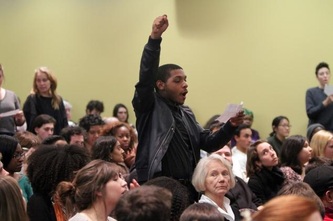
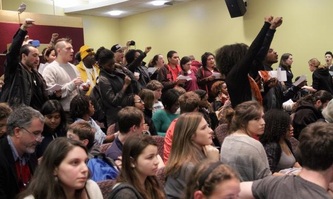
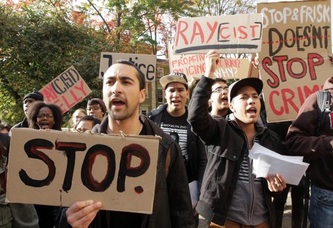
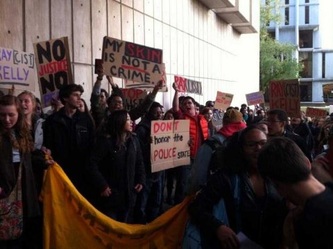
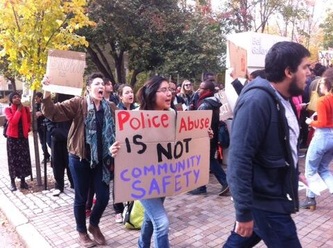
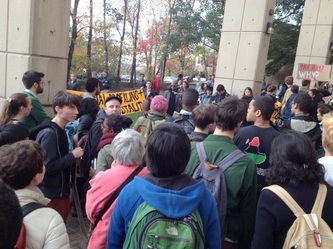
 RSS Feed
RSS Feed
